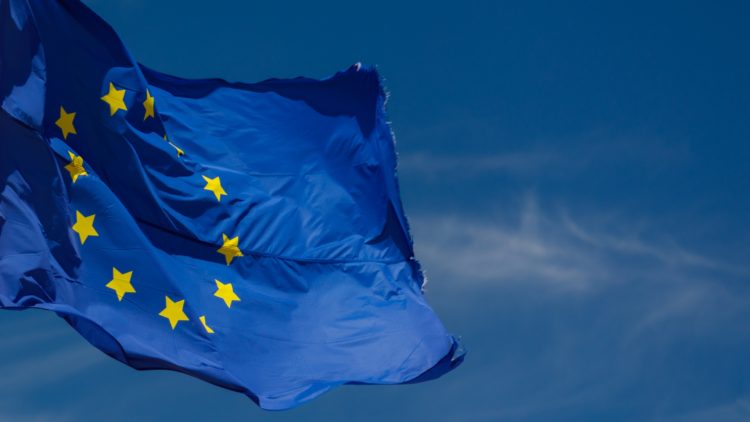As 2022 drew to a close, Hungary and the European Union made a modicum of progress in their long-running battle of wills. The (pro-Kremlin) Hungarian prime minister Viktor Orbán ended his opposition to sending European funds to support Ukraine in the hope of unlocking other withheld funding for his own government.
However, the funds depend on Orbán committing to rule-of-law reforms. And while promises have been made, Brussels refuses to send all the money – which amounts to billions of euros – until meaningful progress has been made.
Orbán appears to have little desire to change his ways but is feeling economic pressures at home . This immediate need to cooperate with the EU does not change Hungary’s position as the bloc’s problem child. And at this point, the years-long battle is feeding into a dangerous paradox that undermines the reputation of the European Union as well as Hungary.
Democratic erosion
Almost 25 years ago, journalist Fareed Zakaria warned that constitutional limits were being overridden by elected governments around the world and that serious consequences would follow. Zakaria cited countries such as Pakistan or Peru as case studies, but we might just as well examine European nations with the same fears in mind.
Recent research on democratic erosion offers a wealth of contributions. Scholars have identified what they call a third wave of “autocratisation”. Without any military revolts, violence or weapons, gradual changes take place.
Regular elections continue but opportunities for opposition parties to mount a meaningful campaign against the incumbent are gradually weakened. A recent study from political scientists in Sweden estimated that about 70% of the world’s population now lives in an autocracy – with six EU member states evaluated as autocracising.
Hungary joined the EU in 2004 as part of a wave of new members, and was long hailed as a success story of the bloc’s expansion (along with Poland). Yet legitimate governments in Hungary have since taken incremental steps towards authoritarianism.
In the modern era, autocrats aim to avoid international attention or attacks from the media while they quietly limit the freedom of civil organisations and control the resources of political parties. They learn from each other and copy reform initiatives that have already been successful in other countries.
The first signs that this was happening in Hungary came with Orbán’s election in 2010. A process of democratic stabilisation had been underway but was then interrupted. Orbán’s arrival marked the beginning of political, democratic and economic decline. A particular kind of nationalist narrative began to take hold which influenced not only internal politics but also relations with the EU.
At the domestic level, the government became a law-making factory. Between 2010 and 2015, legislation was drafted and passed at breakneck speed. During that period, 88 laws went through less than a week of scrutiny in parliament before becoming official. And 13 of these laws were passed within 24 hours. The constitution was amended, replacing the one agreed by consensus in 1989 and handing greater powers over the law to the government.
A democratic paradox
It is difficult for the EU to intervene in the internal politics of its member states. The states only join the EU once they fully meet the EU’s requirements on democratic principles such as the rule of law. So when they join, they are, by definition, democratic nations. But the system isn’t designed to cope when they subsequently backtrack on those principles.
Already have an account? Sign In
Two ways to continue to read this article.
Subscribe
$1.99
every 4 weeks
- Unlimited access to all articles
- Support independent journalism
- Ad-free reading experience
Subscribe Now
Recurring Monthly. Cancel Anytime.
If the EU intervenes, Brussels quickly faces a backlash for meddling. And with public understanding of the EU generally so low, it is all too easy for the EU to feed into a narrative that it is illegitimate, especially if it is in the domestic government’s interests to play up that narrative to enable its own anti-democratic practices.
This is called the “external pressure-domestic consolidation paradox”. When the EU intervenes, it can be seen as undermining national sovereignty.
There are also issues about isolating member states in this way. The whole point of the EU is for nations to cooperate and collaborate on decisions. When one state is pushed out into the cold, the whole weakness of the system is exposed – as has been seen in Hungary’s ability to hold up support for Ukraine.
Meanwhile, Orbán has made hay with the news that multiple people inside the European Parliament, including a senior MEP, have been arrested as part of a corruption probe – a fact he seems to think is ironic given the parliament’s hard line on his own activities.
The people of Ukraine will welcome the news that the EU is now able to send help. But some very big questions remain unresolved on both sides and no clear path forward is visible.
***
This piece is written by Simona Guerra, Senior Lecturer in Comparative Politics from the University of Surrey. Want to feature your story? Reach out to us at [email protected].
This article is republished from The Conversation under a Creative Commons license. Read the original article.

![]()










COMMENTS